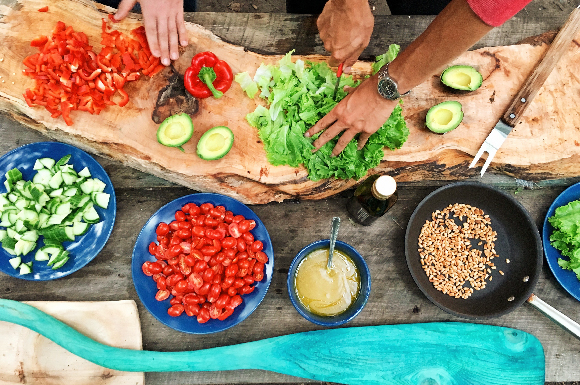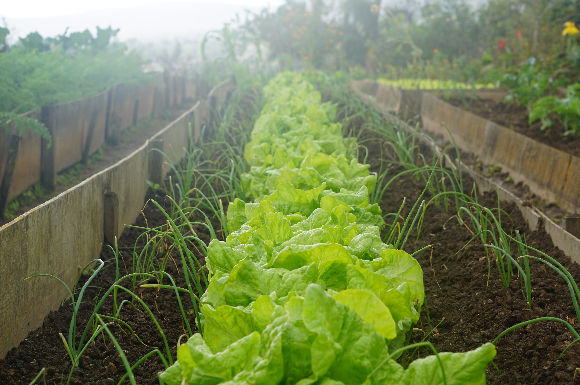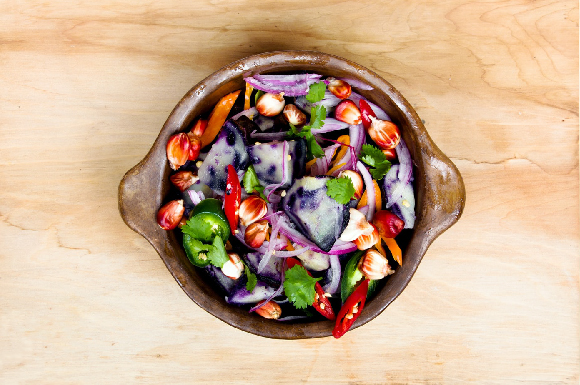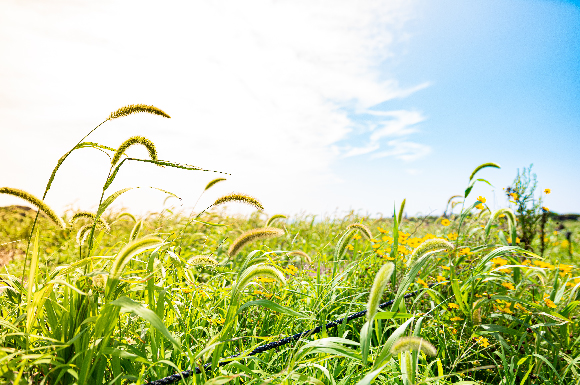We propose to go back to cooking our own food! And no moment is better than the CoVID-19 quarantine, to go back to skills and practices that make sense today – this is not regression!
Rediscovering the importance and the creative potential of cooking has become a civilizational stepping stone into a more resilient future! Cooking our food is also the best contribution to our own and our family’s health, to share love, to channel our creativity and curiosity, to experiment and discover new pleasures!
Until recently cooking was considered a menial activity, at best old fashioned, basic, not relevant… Prevalent until not too long ago, the concept of “Women belonging in the kitchen” is still having a negative impact on our relationship with cooking. As we can’t stand for this gender distinction, it is a civilizational battle that still challenges many circles. One of the collateral effects of gender emancipation has been the alienation from cooking. Wishing to be taken seriously professionally, many women have needed to take distance from the kitchen, at the cost of their own health.
Some argue that one of the reasons the majority of well known Chefs are men is precisely because women have chosen not to be associated with preparing food or, maybe that when they cook it becomes an act of subsistence and not about the art of cooking. Guess what? More than we could have imagined, subsistence is an art! An art we all need to master!
Relevant Facts and Figures:
Did you know that stir-frying carrots increases the amount of beta carotene by 6.5 times than if just eaten raw? Beta carotene is an antioxidant that converts to vitamin A which in turn plays a very important role in skin health and improving eye vision. It also plays a role in reducing cognitive decline and cancer risk.

NEVER TOO LATE TO LEARN
Alex is 40 years old and a journalist. He has never cooked in his life. Staying in all week with the CoVID-19 pandemic not knowing how to cook became a challenge and he wished he knew how. On a call with Solange he shared this, a little hopelessly, and she told him her father learned how to cook when he separated from her mother at the age of 60 and, probably because he enjoyed his food so much, within a few months he became a mean cook!
Solange sent him an online questionnaire, part of a campaign celebrity chef Nuno had launched with the start of the quarantine, to help people like Alex start a relationship with cooking! And… Alex was selected among 20 or so people for the first online program for adult cooking initiation!
The first online cooking session was with celebrity chef Nuno himself! Alex was impressed and simultaneously surprised, because it was not set in a kitchen… Nuno told his 20 participants that he needed to hear from them first!
Recording the session, he asked everyone the following to share online:
- Question 1: your three favourite foods, what is important about these, describe the taste and the memories associated with these foods?
- Question 2: what are your preferences and food intolerances?
- Question 3: what of the following list of fresh fruit vegetables can you easily access (preferably organic): …
Nuno then explained to participants that the cooking he wishes to teach them needs to be adapted to their wishes, needs and what they have access to.

BUILD YOUR OWN FARM
Build your own farm – on your terrace, in a community garden … Back in 1966, just after the 25 de Abril bridge was completed in Lisbon (then called Ponte Salazar), Mr Pimenta went to live in a little shack in Campolide and started farming in a patch nearby. He planted trees, bushes and vegetables and the produce of the land he tended fed his family and his wife even managed to sell the excess in the local market.
One spring afternoon Mr Pimenta proposed playfully to his children, to plant the pips of the loquat fruits they had just eaten after lunch, to see which of them would grow. A fruit orchard of loquat trees resulted, as they took him up on this challenge.
As years went by, the area was redeveloped and became a social housing neighborhood. He decided to move away. Other families took over his patch and continued to plant vegetables and fruit trees.
Sr Pimenta now has a patch in the urban community farm of Bela Flor neighbourhood, where, unaware of the fact that his method is known as agroforestry, he continues his ancient practices, such as spreading leaves over the earth “we need to feed the soil so it can feed us back”.
In 2008, a group of volunteers started planting a forest right next to his, consciously practicing the agroforestry method. They were utterly surprised, when they discovered that Sr. Pimenta had preceded their every good move. Today this local agroforestry project, by the name of “BelaFlorRespira”, feeds many families and will, in the future, hopefully also generate micro businesses.

COOKING WITHOUT FIRE
When our foods become “empty” of real and live nutrients and merely cheat our hunger, they are not feeding our being and they deprive us from health and balance, thus making room for chronic diseases like diabetes, hypertension, high cholesterol (leading to strokes), eating disorders, autoimmune illnesses, cancers… some curable some not.
As a consequence of the “empty” food system we are caught up in, we are being invited to reconnect with the true value of live foods and to become pro-life activists.
Live food means raw food – or food that is not heated beyond our own body temperature.
You may ask: why raw if cooking foods supposedly makes them more digestible.
Well, because live foods carry so many precious nutrients – for example: a juice made with fresh wheatgrass brings a totally different level of nutrition into our body – our vitality and health benefit tremendously, especially if we also expose our skin to the sun after we ingested it (see facts and figures).
Although raw food means that we don’t “cook” it, preparing raw meals is a very diversified and creative art, well worth diving into! It therefore implies rediscovering the art and craft of preparing food and therefore spending time in the kitchen – and this activity will still go under the heading of cooking.
It also introduces attitude!
When the food we eat is so different from what we have been brought up with, or from what we are used to, therefore different from what other people are used to eat, it requires that we learn to stand for our difference! Some people may mock us or feel mocked by us, others may scorn us or feel scorned by us – and this can become quite a challenge!
Fully experiencing the benefits raw food brings to our health, energy level, good mood and overall wellbeing- all in all allowing us to live to our fullest potential – we surrender to the lifestyle shift, in order to maintain these newly acquired qualities in our life.
(compiled on the basis of Joana Guardião)

REWILDING
Imagine the planetary impact of nearly 8 billion humans adapting to a more simple and intuitive way of obtaining food that cultivates vibrant health while nourishing a symbiotic relationship with the land.
As it stands today, industrialized agriculture is a serious burden on the ecosystem and has steered us away from our well-being and connection with nature. Does it make sense that most people are more comfortable drinking a Diet Coke, designed in a lab rather than chewing on a chicory flower? Why don’t we know what to eat? Where in our evolutionary journey did we lose this vital knowledge? Was it once as instinctual for us as a bird eating a worm, or learned behavior that has faded by the wayside through technological advances?
What we do know from the evidence of fossilized remains is that an understanding of wild food and herbal medicine was how humans survived before the domestication of plants and animals. Did our paleolithic ancestors figure this out through trial and error, or were they actually more intuitively tuned in with the natural world?
Since we cannot actually prove what our archaic friends were thinking and feeling, let’s just play with the idea that humans once behaved more like animals in terms of innately knowing what foods to eat and perceiving the subtle language of the earth. If this was the case, how might we reactivate that dormant ability? Do we also hold an inner compass that gives us fair warning to head for the hills before a tsunami hits or avoid eating a leaf by just taking a quick whiff?
What if we took a holistic approach in navigating the mind and applied intellect to fortify our intuition and sense of connectivity, instead of chronically disengaging our instincts as superfluous imaginings that don’t fit in the box of manmade definitions? You’ve probably heard the term, “use it or lose it”; a tried and true exercise that applies to every muscle in the body, our critical thinking skills, emotional intelligence, communication, creativity, observational skills and intuition, to name a few. Our habits are what drive the results. If we want to create or hone a skill, we must practice it repeatedly until it becomes trusted second nature, thereby cultivating a type of subconscious “muscle” memory. This is the basis of neuroplasticity, a scientifically proven technique used to deliberately rewire our brains, habits and perceptions of the world.
Can we cultivate a deeper sense of symbiosis with the natural world by ritualistically empowering an experience of interconnectivity through our daily habits? Of course.
Anyone who has ever poured their heart into tending a garden or nibbled on fresh berries in the woods understands the simple and unexplainable pleasure of indulging in the fruits of the land. When we nurture a relationship with the living source of our nourishment, we harmonize with nature.
The art of foraging is a gateway to one of humankind’s most ancient survival practices and ways of communing within the earth. Knowing how to gather wild food and medicine is a fundamental life skill. It is also a practical and grounded approach to awakening deep ancestral wisdom, which inspires a healthy sense of freedom and empowerment. Now, of course not everyone wants to go meandering through the meadows looking for a dinner salad when there’s a grocery store just down the road. But perhaps those who are interested will be the ones providing the local produce and herbal medicine.
If you are curious to experiment with a daily routine to help open neural pathways for developing an intuitive relationship with the intricate world of plants, you may find a meditative exercise in our sustainable practices area.
It is time we un-tame our wild.
(Jennifer Caravella is a herbalist and her passion lies in connecting with Nature and transforming local abundance for healing and wellbeing.)
